Two rare storms struck Sekinchan in March 2025, causing widespread damage. Tzu Chi volunteers responded swiftly with emergency assessments, registrations, and aid distributions, bringing warmth and relief to affected residents.
On March 6, residents of Sekinchan were jolted awake as a sudden storm swept through their community. Outside their windows, power lines swayed violently and roof tiles flew like scattered leaves.
Ranni, a resident for over 30 years, rushed to the window upon hearing a loud noise outside, only to see a whirlwind heading towards her home. “I was terrified,” she recalled, “I never imagined something we usually only see on television could happen here.”
Shaken, she ran upstairs to wake her sleeping son, bringing him to safety, while her husband tried desperately to hold the front door against the howling winds. Within moments, half the door was ripped open, forcing the couple to cling to pillars. Ranni’s elderly mother-in-law, with limited mobility, could only remain on her bed as the storm roared past.
The storm lasted about a minute, but for Ranni, it felt like an eternity. “All I could think of was survival. I was overwhelmed with helplessness and fear, as if everything was about to end,” she recalled. When the storm finally passed, she discovered that their roof was gone. Rain poured in, soaking clothes and bedding, leaving their once-safe home in disarray.
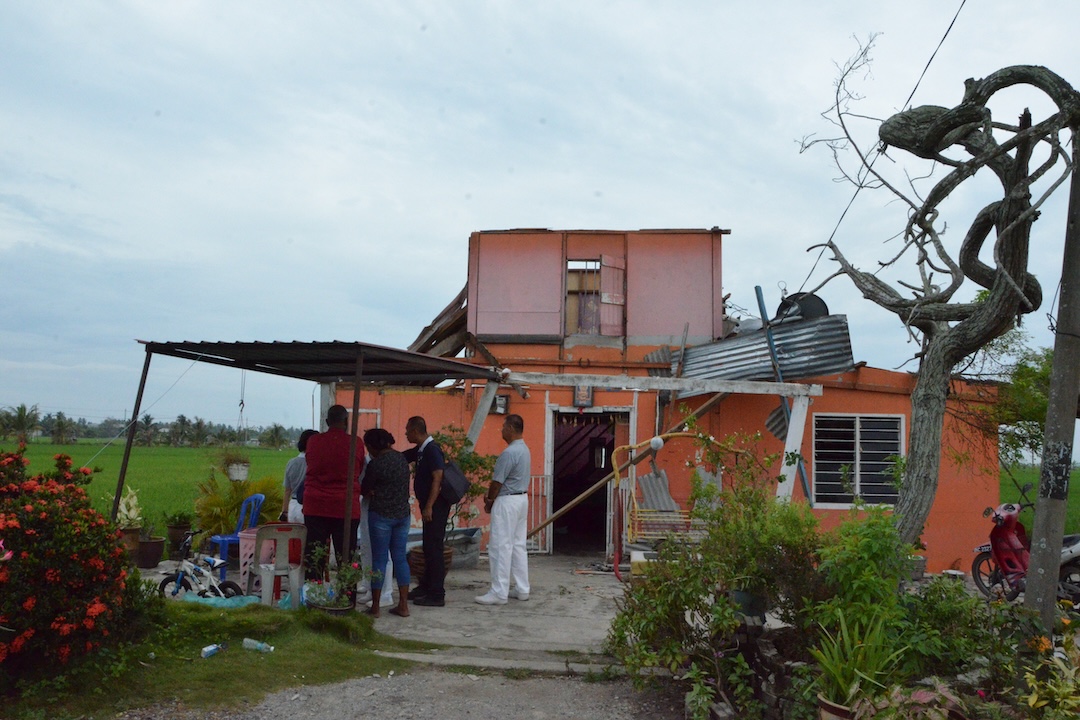
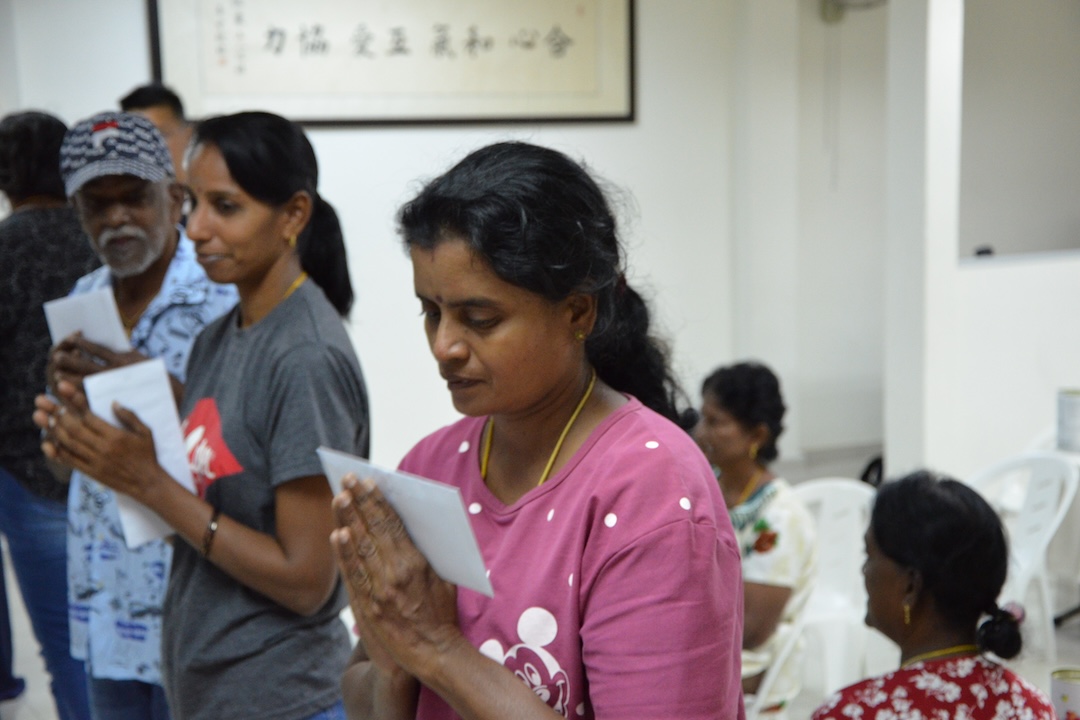
◎ Swift response
Upon learning of the storm’s destruction, Tzu Chi volunteer Tan Siew Lan immediately took leave from work and gathered four fellow volunteers to conduct site visits before reporting the situation to Tzu Chi’s emergency response platform.
“Some houses were near total loss. Furniture, appliances, clothing, and household items were swept away. Some children didn’t even have basic school supplies left,” Siew Lan reported.
Without delay, the team began registering affected households and planning aid distribution. Siew Lan also enlisted a Tamil-speaking friend to help with official documents and communication with affected residents seeking shelter at a Tamil primary school.
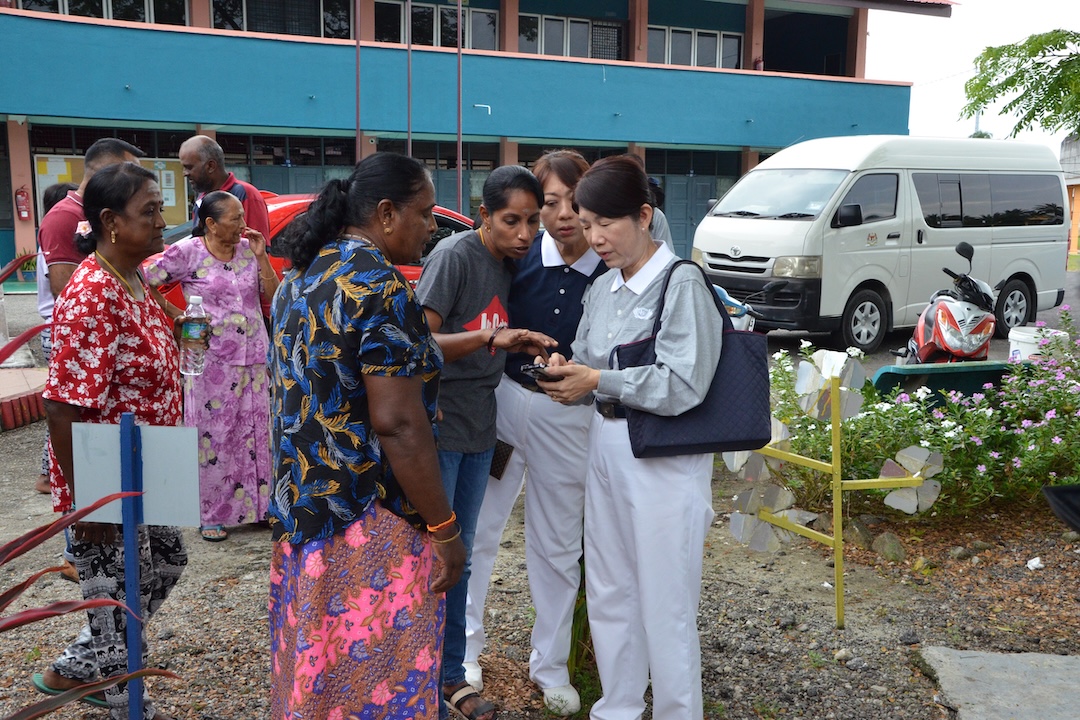
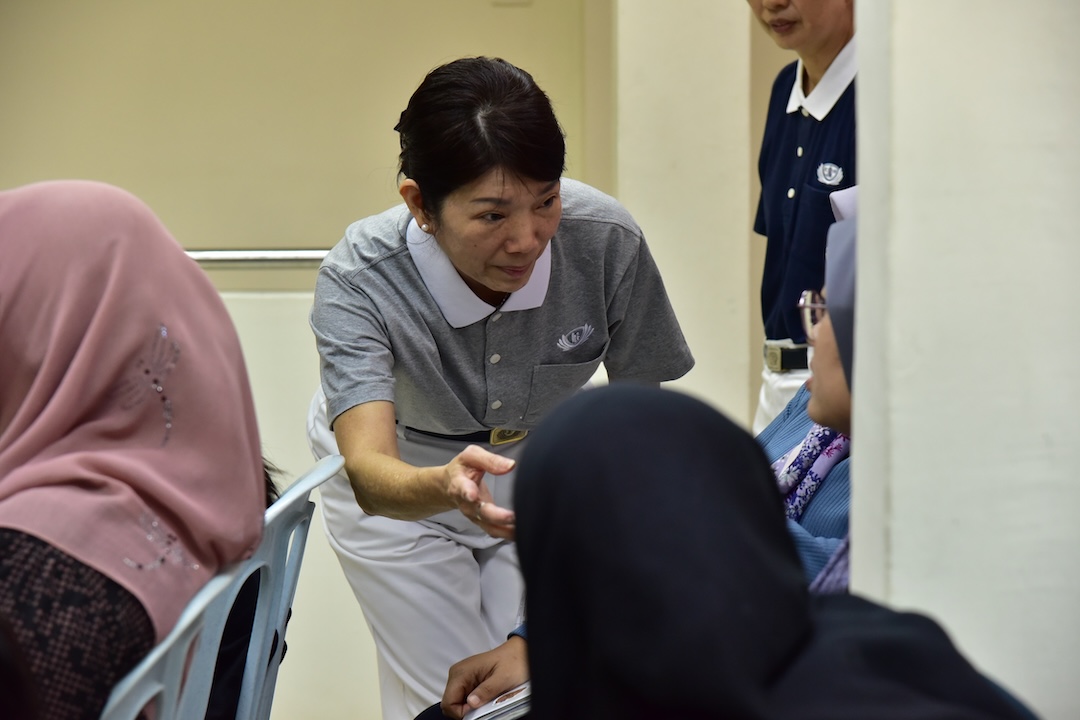
◎ Bringing comfort
Three days after the storm, volunteers from Sekinchan and Klang formed four teams to escort residents back to their homes for detailed damage assessments. “You can’t tell from the outside, but once you step inside, you understand what ‘total loss’ really means,” said volunteer Lim Mei Lian.
That same day, a relief distribution ceremony was held at the Tzu Chi Sekinchan Community Centre. Volunteers introduced Tzu Chi and read aloud a letter of consolation from Master Cheng Yen. As the song “One Family” played, volunteers gently handed over relief funds to the families, offering not only financial assistance but also emotional support.
“Seeing the food and relief funds prepared by the volunteers brought me great comfort. I no longer feel so alone,” said Uma Devi, her voice choked with emotion.
After watching footage of the recent floods in East Malaysia, Uma reflected, “Compared to them, I’m very fortunate. My family is safe. I only lost material things.” Inspired, she pledged to join the ranks of volunteers and pay the kindness forward once she regains stability.
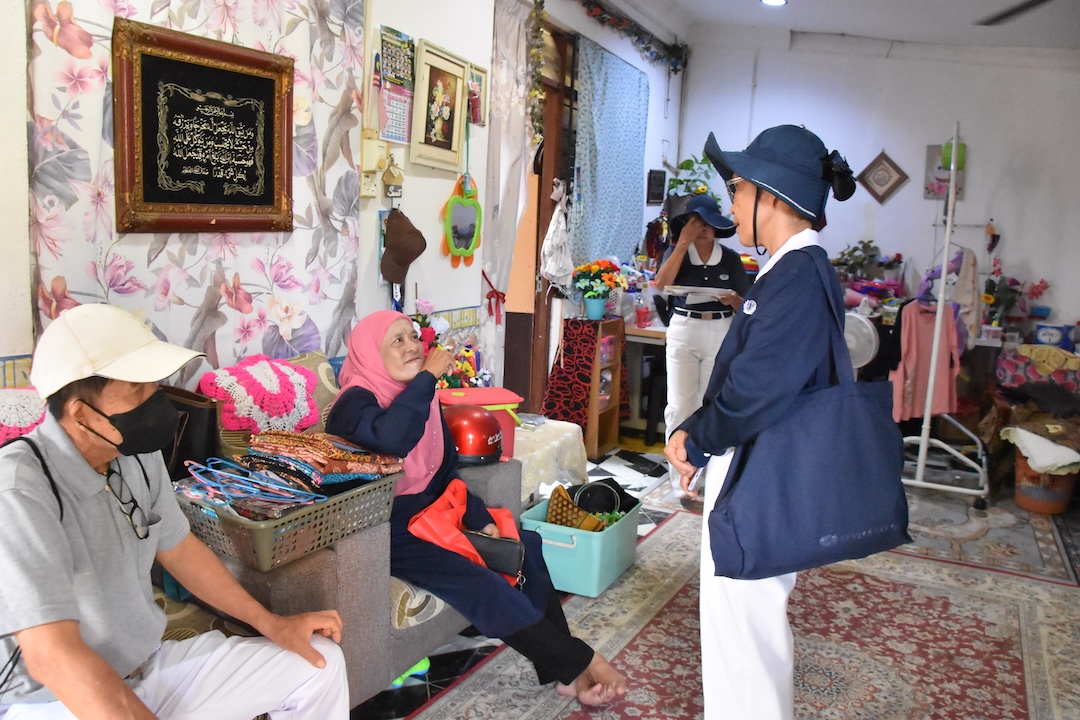
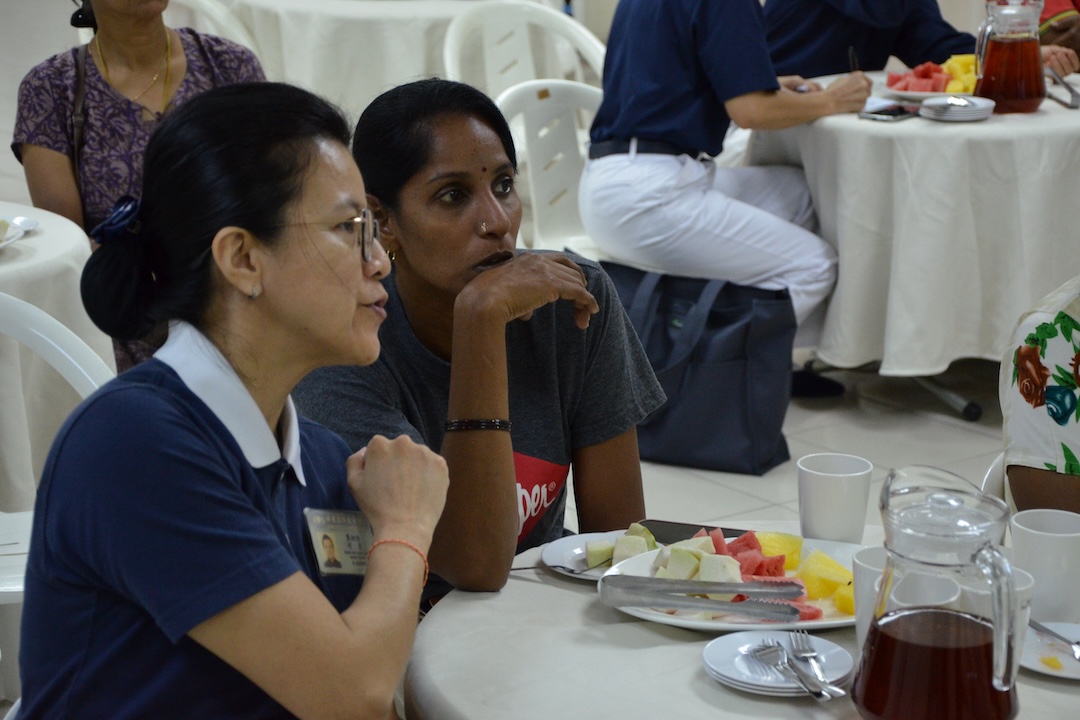
◎ The storm returned, so did Tzu Chi
On March 11, another storm struck a different part of Sekinchan, tearing off roofs and flooding several areas. Once again, volunteers mobilised to conduct home visits and register affected households, followed by a relief distribution for 20 households on March 15.
“The roof rumbled loudly and then in a moment, it was gone. Rain came pouring in, and my three-year-old grandchild burst into tears,” recalled Kee Siew Chew. She never expected strangers to show up at her damaged home with kindness and support.
Moved upon learning that the relief funds came from public donations, she adopted a bamboo bank. “I want my grandchild to learn about charity and grow up planting seeds of compassion in his heart,” she said.
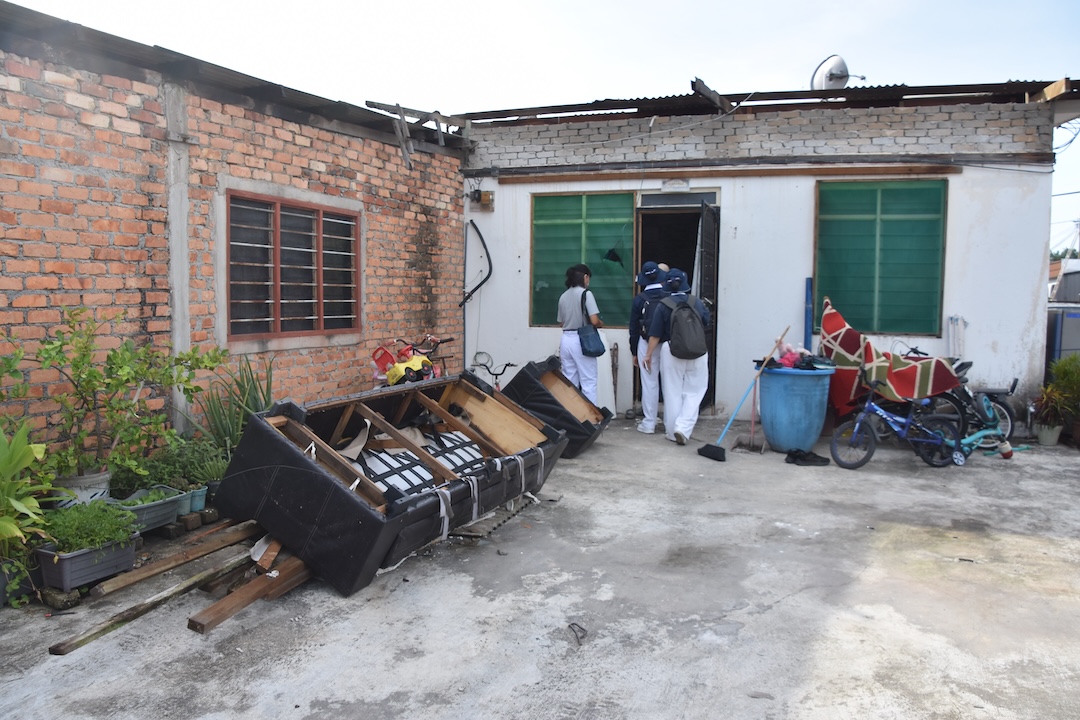
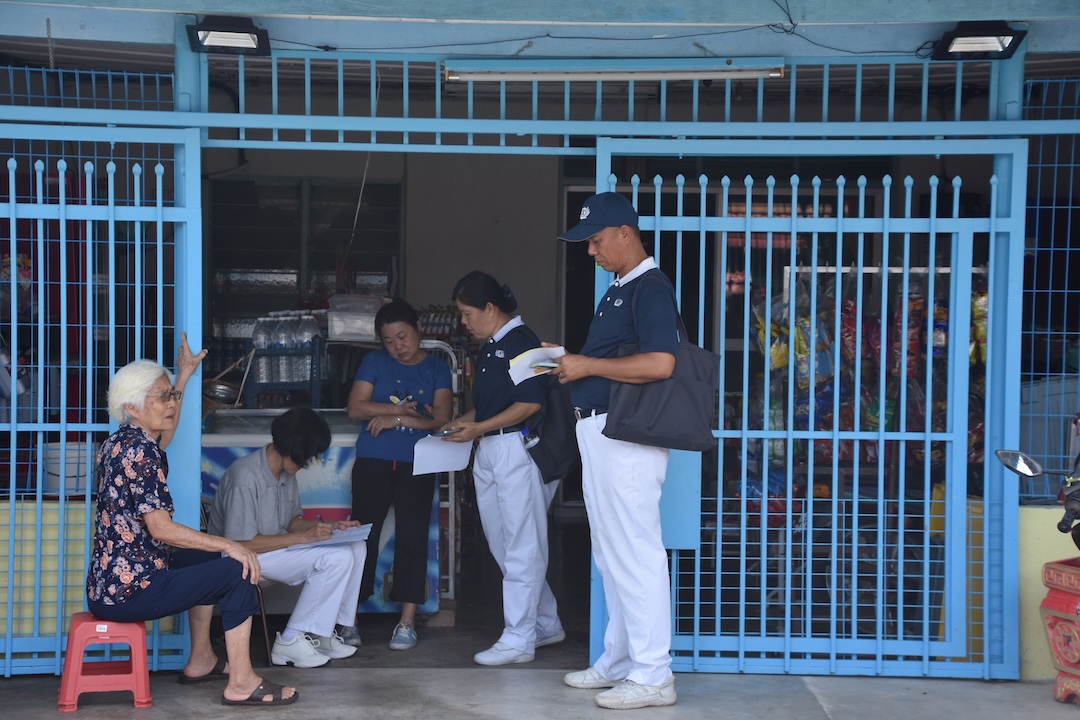
During the ceremony, an environmental awareness video prompted deep reflection among attendees. “It turns out that extreme weather is closely linked to how we live,” Lee Luan Ngo shared. She pledged to start practising waste sorting at home and donate the proceeds to help others. “Every little bit counts as a good deed. I hope my effort can help ease the Earth’s burden.”
◎ A wake-up call
These two violent storms were unusual for Sekinchan. They were like nature’s warning. Behind such climate events lies the Earth’s silent response to human lifestyle choices. In the face of intensifying climate change, we must not only improve disaster response but also awaken a deeper awareness—a renewed sense of responsibility and love for our planet.
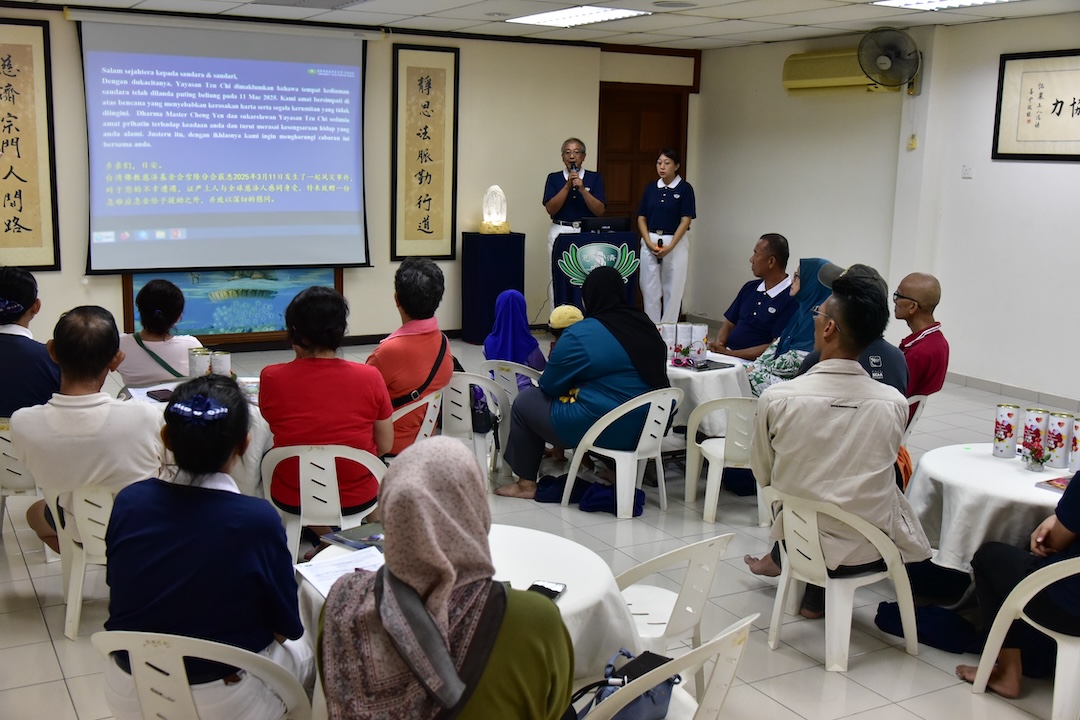
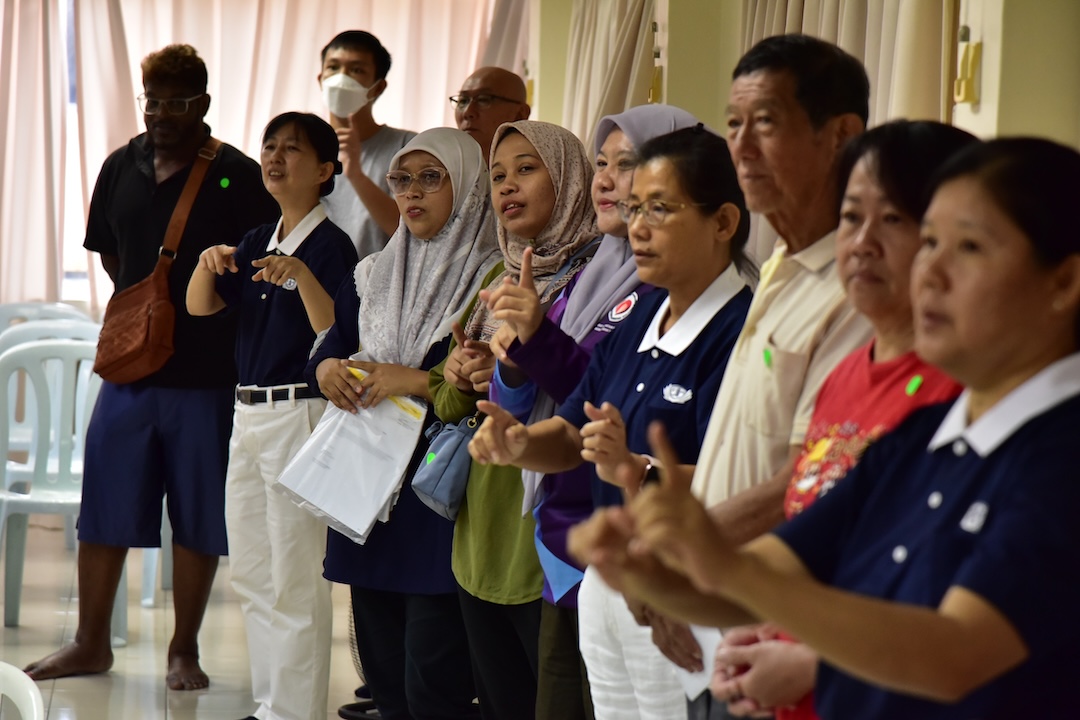
●
After the storms have passed, may we cherish peace more deeply, live more mindfully, and each do our part to protect the Earth.


![Sekinchan, a fishing and farming village, was devastated by storms twice in a week, prompting swift volunteer response with aid and support. [Photo by Lee Wei Kean] Sekinchan, a fishing and farming village, was devastated by storms twice in a week, prompting swift volunteer response with aid and support. [Photo by Lee Wei Kean]](/images/Articles/CS/2025/KA20250315_lwj02_064.jpg)
